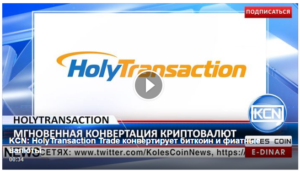Search Results For: bank of america
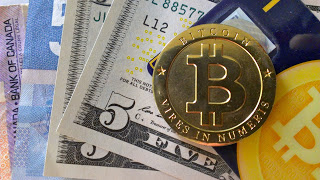
HolyTransaction Trade: opinions and news
HolyTransaction Trade is our new service to allow you to buy and sell your Bitcoin with low fees and instant conversion.
HolyTransaction Trade is a virtual exchange for users that want to convert their digital currency into fiat currency and vice versa, through Halcash ATMs, bank transfer, Bitcoin virtual credit card and more options available worldwide.
Click here to read more about HolyTransaction Trade and start converting from/to your favorite cryptocurrency.
We launched this service a few weeks ago and now we want to share with you a few articles written by magazines from all around the world about HolyTransaction Trade.
HolyTransaction Trade on magazine
We received a widespread of our press releases and news in Asia, America and Europe and we cannot be happier for the support we received in the latest days.
As you might know, we had a few issues during 2016, but this is a new year: all problems are disappeared and we are stronger than ever with a new service and more strength to improve our work and your experience with us.
Click on the image below to watch a recent video published on YouTube by the Russian KCN.
Also, please click on the images below to the read the full press release published on the major magazines about Bitcoin and the Blockchain, including Cointelegraph Espana, CryptoCoin News, Bitcoin.com, and more…
Open your free digital wallet here to store your cryptocurrencies in a safe place.
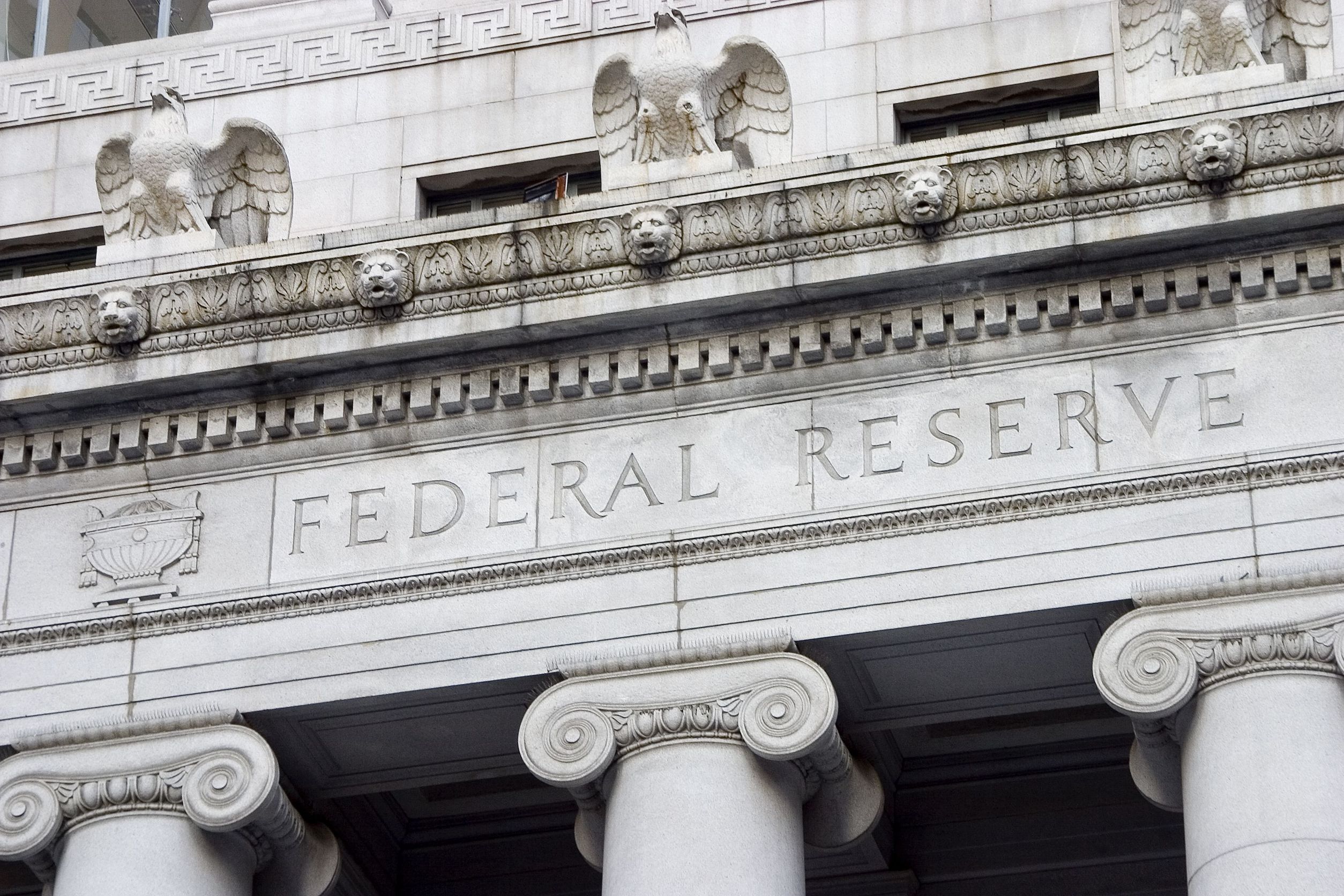
Federal Reserve Blockchain Paper: read here
The US Federal Reserve Blockchain Paper is a new research about distributed ledger technology published by the American institution.
This new paper is about blockchain applications for payments and transaction settlement.
It was written by a research group composed by the Federal Reserve Board and botht the Federal Reserve Banks of New York and Chicago.
Although another research was published in the past by members of the Federal Reserve system, this new document is the first major publication from the Federal Reserve Board.
However, the research paper covers a wide range of topics, including both a top-down view of the concepts behind blockchain.
Also, the US Federal Reserve Blockchain Paper talks about the challenges and opportunities for financial companies or payment system operates looking for possible integrations.
“An important goal of this paper is to examine how this technology might be used in the area of payments, clearing, and settlement and to identify both the opportunities and challenges facing its practical implementation and possible long-term adoption.”
This publication comes just two months after the news that Fed governor Lael Brainard revealed the interest in the blockchain by the central bank.
According to the Federal Reserve press release, researchers interviewed almost 30 representatives from the public and private sector, explaining both how to establish companies and startups working with the distributed ledger in the fintech field.
The full US Federal Reserve Blockchain Paper can be found here:
Distributed ledger technology in payments, clearing, and settlement
Open your free digital wallet here to store your cryptocurrencies in a safe place.
Mitsubishi invests in Blockchain

Mitsubishi invests in Blockchain: a gap to fill up
Mitsubishi to have its own cryptocurrency
Digital Currencies Wallet
Open your free digital wallet here to store your cryptocurrencies in a safe place.
HolyTransaction’s Bitcoin Monthly Roundup of January 2016
Thank you for reading our newsletter with the previous month’s best Bitcoin articles!
We tweet more cryptocurrency news and insights daily @HolyTransaction
Open your free digital wallet here to store your cryptocurrencies in a safe place.
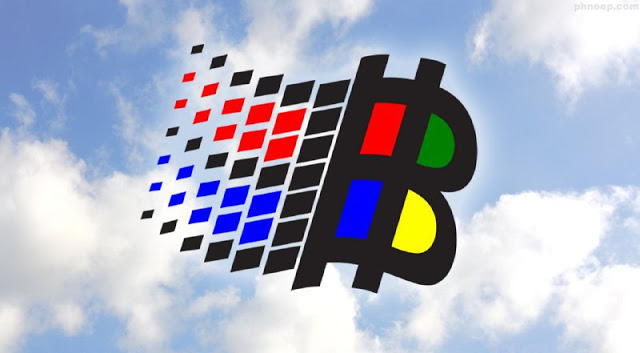
Microsoft Opens to Bitcoin
Since the end of 2014 Microsoft Corporation has started to test the blockchain technology.
 Its implications extend not only to bitcoin transactions, but it can be useful in various fields: from real estate to copyrights, from music to cinema, etc. In fact nowadays there is an increasing number of new startups that are working on innovative projects based on the blockchain with multipurpose uses and aims.
Its implications extend not only to bitcoin transactions, but it can be useful in various fields: from real estate to copyrights, from music to cinema, etc. In fact nowadays there is an increasing number of new startups that are working on innovative projects based on the blockchain with multipurpose uses and aims.About the author: Amelia Tomasicchio is a writer and a journalist of Bitcoin-related news and articles. She started writing about Bitcoin in 2014 and she graduated in Rome with an essay about movie industry related to Bitcoin.
Open your free digital wallet here to store your cryptocurrencies in a safe place.
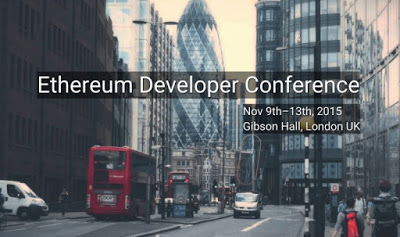
Microsoft to Sponsor the Ethereum DΞVCON1 Conference
“DΞVCON1 is very excited to work with Microsoft and we look forward to having them in London.”Microsoft’s head of US Technology Financial Services, Marley Gray, explained more specifically why Microsoft had taken an interest in this international and decentralized technology event:“Microsoft is excited to sponsor and attend Ethereum’s DevCon1. We find the Ethereum blockchain incredibly powerful and look forward to collaborating within the Ethereum Community. We see a future where the combination of Microsoft Azure and Ethereum can enable new innovative platforms like Blockchain-as-a-Service. This will serve as an inflection point to bring blockchain technology to enterprise clientele”.
Ethereum DevCon1 Is Bringing Interesting Companies and People Together… For a Better FutureAlready, it has been confirmed that not only will Microsoft be in attendance, but so will Nick Szabo. That is actually no surprise given that Szabo coined the term “smart contract” many many years ago and has become increasingly vocal on the internet as his pet idea has started to come to fruition. Smart contracts are a large part of Ethereum’s mainstream appeal, though the concept is still in the process of gaining momentum. The future prospects of robots and computers replacing humans for certain types of jobs has always been on the fringe of human imagination. The more you think about smart contracts, the more you realize that such a futuristic world couldn’t exist in a stable state without something like smart contracts. As panelists at the Money20/20 conference stated:
“Cryptocurrency is the most natural way for machines to pay machines.”
Bitcoin-inspired blockchain technology, of which Ethereum definitely is, has seen a lot of validation lately. Other Bitcoin-inspired blockchain technology like BitShares is also gaining traction, though not in the form of Microsoft sponsorships. Besides the fundraising and actual release of Ethereum’s Frontier alpha and a shaky first few days, the formation of a conference is a milestone that most “altchains” never achieve – not that there was any doubt that Ethereum would make it this far, anyways. After all, even Imogen Heap has even started using Ethereum, why wouldn’t Microsoft be next?
Open your free digital wallet here to store your cryptocurrencies in a safe place.
Bitcoin’s Monthly Recap of May 2015
Open your free digital wallet here to store your cryptocurrencies in a safe place.
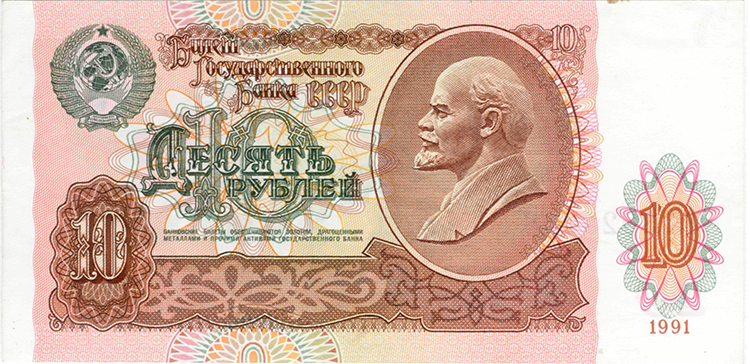
Cryptocoins for good: Cryptocurrencies Empowering Citizens Against Oppressive Governments
How cryptocurrencies can change the balance of power between dictators and citizens
the “control by the ruble” of the Soviet Gosbank, to the dual currency
system in Cuba, China’s overvaluation of the Yuan, or the exchange
controls in countries like Venezuela and Iran, regimes of all types have
relied on these kind of controls to rein, or at least try to rein,
capital flights, inevitable when -sooner or later- markets try to
correct the excesses committed by money-hungry “revolutions”.
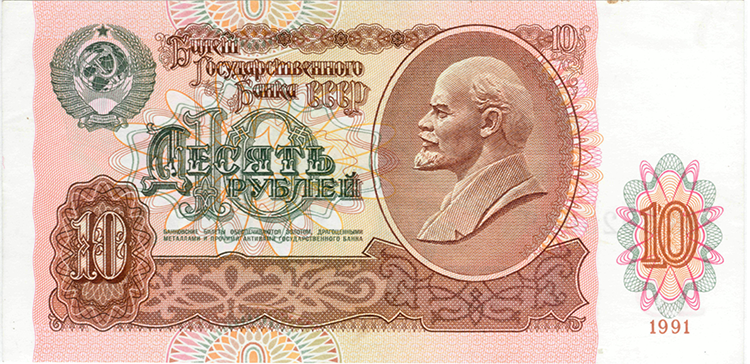 |
| The Gosbank controlled the currency markets using what it came to be known as the “control by the ruble” |
citizens are usually the most affected by such currency controls: as a
pseudo-monopoly is established, a black-market is instantly created and
exchange rates climb inexorably, specially in left-leaning regimes where
the government aims for greater control of all aspects of the economy,
affecting the efficiency of the production system and pushing the
trade-balance the wrong way, increasing in consequence the amount of
foreign currency required to cover internal demand. In short, more
expensive currency is required to buy each time more stuff, the result?
Rampant inflation and even more poverty.
Marxist theory says that the structure of society must be based in
keeping people in poverty, ruled by an upper class with certain rules,
norms and such in order so they can keep people like that. This
old-proven-wrong-policy is still used by many governments today, in
February 2014, for example, some education minister of a Latin American
country said that the government “wasn’t going to take people out of
poverty so they can become political opponents”. This proves that
currency controls are not a consequence of failed economic policies, but
tools for the governments to exert repressing power over its citizens.
what would happen to oppressive regimes if they were to lose control of
the currency exchange, so the people is free to manage their wealth
beyond the power of government currency controls? Currency
decentralization is not new, 20th century economist and Nobel Prize
Winner, Friedrich August Von Hayek (F.A. Hayek), theorized extensively
on this subject, and though polemic, his writings provided an important
part of the theoretical framework for modern economics, specially in
areas such as theory of money and economic fluctuations.In his book Theory of Liberty he wrote:
“The
experience of the last fifty years has taught most people the
importance of a stable monetary system. Compared with the preceding
century, this period has been one of great monetary disturbances.
Governments have assumed a much more active part in controlling money,
and this has been as much a cause as a consequence of instability. It is
only natural, therefore, that some people should feel it would be
better if governments were deprived of their control over monetary
policy. Why, it is sometimes asked, should we not rely on the
spontaneous forces of the market to supply whatever is needed for a
satisfactory medium of exchange as we do in most other respects?It
is important to be clear at the outset that this is not only
politically impracticable today but would probably be undesirable if it
were possible. Perhaps, if governments had never interfered, a kind of
monetary arrangement might have evolved which would not have required
deliberate control; in particular, if men had not come extensively to
use credit instruments as money or close substitutes for money, we might
have been able to rely on a self-regulating mechanism. This choice,
however, is now closed to us. We know of no substantially different
alternatives to the credit institutions on which the organization of
modern business has come largely to rely; and historical developments
have created conditions in which the existence of these institutions
makes necessary some degree of deliberate control of the interacting
money and credit systems (my emphasis). Moreover, other circumstances
which we certainly could not hope to change by merely altering our
monetary arrangements make it, for the time being, inevitable that this
control should be largely exercised by governments”
 |
| Governments have assumed a much more active part in controlling money, and this has been as much a cause as a consequence of instability F.A. Hayek |
what if it was no longer inevitable? During the 20th century creating
and managing currencies was only possible for governments, so it was in
essence exclusively a political matter, but technology is changing that,
money issuing is not only government turf anymore, they now must
compete with cryptocurrencies. In governments with an effective rule of
law, this can be fair competition, for example, currencies can be
somehow regulated -as the IRS recently did in the US- and a legal
framework can be established so everyone can play by the rules. But,
there are many countries where the line between state and nation is
blurred, these countries may also take two additional paths, they can
prevent financial institutions or businesses from transact with
cryptocurrencies (e.g. Colombia and China) or they can declare an
outright ban (as it is rumored about China every single day). In both
scenarios cryptocoins could have a very important role, in the former
-while remaining legal- they can create a new channel for the flow of
foreign currencies, in the latter they can work as a relief valve, as an
alternative for the black market. In any case, by increasing the supply
of foreign currency, these coins can effectively push prices down, with
all the benefits that comes with it.
once, the development model that could arise from an efficient
cryptocoins market presents a development plan that is not based on
plain charity, in giving away something with the hope that the recipient
will make a good use of it and luckily return it back in future
productivity. People cannot only mine their own coins but they can rest
assure that the value of such money will be subject to fair rules of
supply and demand, not to devaluation-based political planning; and most
important, they may not be held hostage in poverty by exchange
controls, giving back to them a little of that sovereignty that
dictators keep claiming or themselves.
Open your free digital wallet here to store your cryptocurrencies in a safe place.
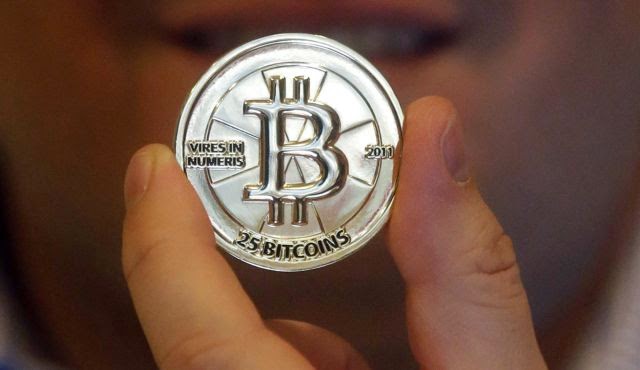
Tel Aviv to get first Bitcoin ATM in Middle East
launched in Tel Aviv on Wednesday. Bitcoin is a peer-to-peer virtual
currency that allows for transactions between users without any third
party or middle man.
“cash-out capable Bitcoin vending machine,” made by American company
Robocoin, has several security features built in to prevent theft and
fraud that are compliant with anti-money laundering regulations,
according to a press release.
launch of the first Bitcoin ATM in the Middle East will allow any
person with no previous knowledge of bitcoin and how it works to easily
buy and sell bitcoin 24/7 bypassing the bureaucracy of the banks,”
Bitbox CEO Nimrod Gruber said. Bitbox the company bringing the first
Bitcoin ATM in Israel.
to Gruber, many people are looking for an easy way to sell or buy their
bitcoin for local currency, and this ATM will allow them to do so.
workers, for example, can buy bitcoins in shekels and have their
families withdraw cash in local currency at a bitcoin ATM in their
country.
Open your free digital wallet here to store your cryptocurrencies in a safe place.
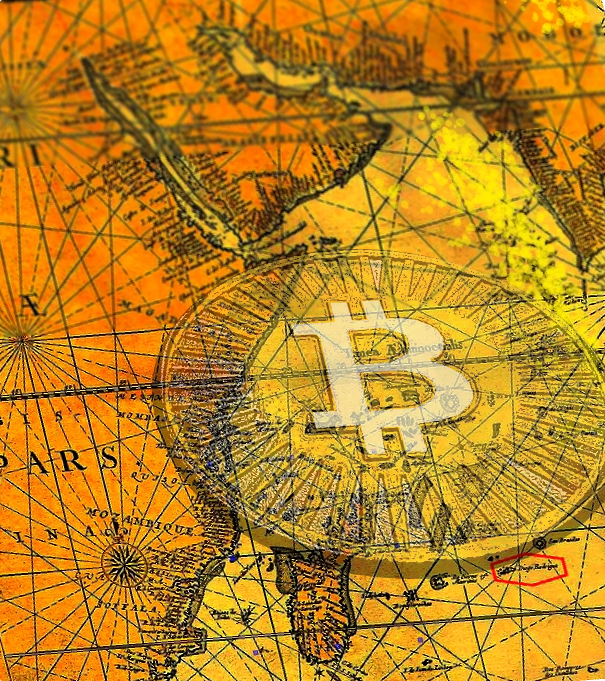
You say Bitcoin has no intrinsic value? Twenty-two reasons to think again!
Intrinsic Value Defined:
we will use the common Wikipedia entry for the intrinsic theory of
value. This is found at: http://en.wikipedia.org/wiki/Intrinsic_theory_of_value
An intrinsic
theory of value (also called theory of objective value) is any theory
of value in economics which holds that the value of an object, good or
service, is intrinsic or contained in the item itself. Most such
theories look to the process of producing an item, and the costs
involved in that process, as a measure of the item’s intrinsic value.
the properties that make it valuable? Some pundits like Warren Buffett
seem to remain stuck in the belief that only things you can touch, feel,
and see can be intrinsically valuable.
are unique or ground-breaking. These properties did not exist before
bitcoin. Some people would rightly point out that many of these
properties can be duplicated. There is, however, one extremely important
factor that separates bitcoin from any other digital coins on the
horizon: the protective shell created by the network that prevents it
from being hacked or commandeered
Bitcoin intrinsic value properties:
- It transcends nations, politics, religions, cultures and regulations.
These vary from country to country in ways that may seem bizarre to
populations out of its own borders. While one may believe that
governments always have their best interests at heart, it may be wise to
see that knife cuts both ways. Some drugs are banned in certain states
or countries that are allowed in others. Bibles are banned from purchase
is some countries. Religion, custom, dogma, superstitions prevent
various purchases based on man-made borders that continually shift over
time. These policies tend to be created by limited segments of
populations that can be self-serving. If one happens to be included in
the “correct” political party, race, religion, items can be purchased or
outlawed. It’s all opinion.
Is this a moral decision? Many of the same governments think it morally
acceptable to hold their own state-lotteries. The lotteries hold
significantly worse odds and tends to target those in the community that
are the least educated and most susceptible to poverty, alcohol abuse,
and have a generally poor understanding of mathematical probability.
Many have gone on to say that lotteries are simply “a tax on people bad
at math”. Many argue that this is a double standard of governments
which prevents them from taking the moral high ground.
the short term). It can’t be counterfeit. There is a record of who owns
it (by wallet id) and its validity is publicly known. It requires no
central clearing house. With any other currency, one must trust the
government from which it is issued will continue to maintain its value
by not “overprinting” to pay for its own mismanagement. You can send it
globally without having to trust anybody. This is not true with any
state issued country, bank, credit card company, or anybody else.
Volatility and long-term trust is still building, but when one transacts
in bitcoin, nobody gets in-between sender and receiver unless agreed
beforehand. It’s permission-less.
By making wallet IDs public, one can track the flow of money through
other transparent wallets. You cannot do that with any other currency.
You can use this feature to do things like monitor your children’s use.
This can make obsolete entire industries that are built solely on the
fact that money can be hidden, disguised, cheated, etc. These can also
happen to bitcoin, but pressure can be applied by the people to make it
transparent and accountable when needed. Auditors may insist on it for
compliance. The list of possibilities of this intrinsically valuable
feature can scarcely be imagined.
Plans for product layers on top of bitcoin to further its use to become
spendable based on contracts that can be programmed to complete with
built in variables, or be valid to purchase only certain items. Insist
your college bound kid buys books and not beer for example. Or based on
GPS in a cell phone, you could send your kids off shopping and it could
be programmed to be spendable only in certain stores.
Wallets containing the currency can be set to only unlock with more
than one signing key. This will leave hackers and thieves frustrated.
Try doing that with your grandpa’s money. It is an intrinsic piece of
bitcoin technology.
Prepaid credit cards can do some of these functions, but only to
locations and countries that accept credit cards. This list of locations
in countries outside of the US is actually decreasing with the amount
of fraud in the networks. Technically, the only item limiting of bitcoin
is the merchant’s acceptance of it. Given the natural law of least
resistance, these limitations could erode as more merchants around the
world realize the potential savings. The network effect will continue to
work its magic.
Absolute clarity of events and their corresponding order is available
in the block chain. Proof of ownership and purchase can be established
without a third party. The trusted and reliable distributed ledger
cannot reasonably be altered (barring a massive scale network attack
which becomes less likely as the network grows).
is nobody’s debt. Paying with bitcoin isn’t a “promise to pay”. It is
payment in full. This could potentially reduces fraud related expenses
on massive scale. http://www.statisticbrain.com/credit-card-fraud-statistics/ There
is no need for a merchant to get bank information or any other kind of
personal information that can be later used in identity theft.
It can defeat government issued capital controls. The same governments
try to hold their own citizens “hostage” monetarily by outlawing
movement of money outside its own borders. Ask any citizen from any
country ravaged by hyperinflation if this is important. Could it be
possible that it might ever become important
in the USA? If you can foresee the day people will be clamoring to get
out of the US dollar, where do you think they are going to go? Ask
Argentina.
As the money exists on the global ledger, all you need is the key. This
can be memorized, or written on any piece of paper – even confined
inside a microdot
the size of the period that ends this sentence. Some old time gold bugs
say you can’t bribe the border guards with bitcoin like you can gold. In
the future, border guards will have cellphones and internet access too.
We aren’t living in the 1960s Vietnam or before any longer.
The people in the USA may think this unimportant in their bubble view
of the world, but is this also true of the 150 or so currencies and countries with terrible track records?
Which other currency enjoys this property? Will enough of the world
outside of the US believe it to be so? Is it hard to imagine the
properties of bitcoin being intrinsically valued by populations
subjected to terrible economic policies? It only takes a billion people
in India fed up with corruption to want an escape mechanism out of the
control of the system. At that point, they won’t give a hoot about what
some American pundit said on “bubble vision” about intrinsic value.
If the citizens stand up united and demand a transparent government,
they can use bitcoin to follow the money in the same way governments use
powers at their disposal for surveillance on their own populations. In
today’s world money corrupts. In tomorrow’s maybe it will become
vice-versa. Let’s see if 86% of the world agrees that any tool that makes less opportunity for corruption is valuable.
You can program it to settle contracts based on certain events such as
date, proof of ownership, death, or a host of other factors that can be
validated programmatically without a third party to validate if the
conditions were met. It can be used as a record keeping asset tag, and
proof of ownership. Ownership of the private key to the bitcoin is by
definition, the owner. In addition, it can be the source record of
ownership for property title, copyrights, and intellectual property that
transcends borders and locally interpreted laws. In effect, the
records become the de-facto “single source of truth”. The currency
itself is globally accessible proof of ownership. Can these functions
and properties be reasonably argued to be valuable beyond the currency
itself?
Paying for items in a global world requires bank accounts. Bank
accounts are legal properties that can only be established with those of
legal age (18 in most locations). There is no minimum age requirement
to pay for items globally using bitcoin. How many people under 18 have
cell phones, AND need to spend money with no credit card. Smart
businesses have started to recognize this intrinsically valuable
potential.
The main attributes of money are often quoted these days, but one
attribute is rarely mentioned. Money has become surveillance. As people
continue to learn of the horrors of the NSA and other government efforts
to spy on every aspect of their lives, it only takes one person drunk
with power to make all the well-intention sounding policies reverse into
shocking horror. One government required Jews to register themselves
for easy identification, which was then used to “dispose” of them.
national origin, political party, age, place of work, address, and much
more can be determined by how and where one spends their money. To those
who think they have nothing to worry about because they are not doing
anything wrong, might ask themselves, what did the Jews have to fear
during the time they were self-registering? They also were not
(generally) doing anything wrong. That’s only one example in a history
littered with them. Is the ability to obscure one’s spending habits
intrinsically valuable? Is it possible to imagine how much of the
population of the world would think it is?
If one were to transfer value between large companies or nations, much
of the world has discovered bitcoin to be a very efficient payment
network to do this. If bitcoin was thought of as envelopes to be stuffed
with dollars or other currencies for transport, only the size of the
envelope itself that contains the dollars inside would be the limiting
factor. To increase the ability and usefulness of this feature, the
envelopes represented in bitcoin price will have to inflate enormously
to take on that load. The Federal Reserve and former Vice Presidents have caught on. So has smart Venture Capitalist firms that have a knack for being one step ahead of everybody else.
are being built up around the new currency (in use, if not government
recognition). Gold towns sprang up into eco-systems but crashed when
the gold veins ran dry. We know exactly how deep the bitcoin well can go
and the rate at which it will be found. What other modern day
ecosystems are being built because of the intrinsic values of a
currency?
for centuries. Bitcoin has the possibility to change the paradigm
completely. These banks will likely find ways to maintain their power
and wealth and there is nothing preventing them from moving into digital
currencies to maintain it. However, which other currency has the
possibility to change the dynamic? Many in the world will likely place
much value in the paradigm shift that is possible. When was the last
time a monetary unit threatened to rewrite the rules from the ground up?
from a whistleblower from the World Bank reports that all networked
banking infrastructure throughout the entire world can be traced back to
12 people who make decisions at the privately controlled US Federal
Reserve bank. Consensus driven, public records, and democratization of
money made possible by bitcoin, might change the rules.
the poverty riddled villages with no access to banking were able to
lift themselves out of poverty with simple abilities to pay suppliers
and start businesses. With the cross border scale and usability of
bitcoin, imagine the same results x 1,000. Are there any national
currencies up to this task?
Muggers of the future will be at a loss for what to do with the bitcoin
they can’t take from your wallet or purse. That money will be no good
to them without the private keys to spend it. There likely will no
longer be credit cards there was well. Could robbery itself become
obsolete? Hackers will soon have a difficult time stealing money from
multi-signature wallets.
Because of all of the reasons stated above, it might as well be called
the currency of freedom. Dictators will hate it. Totalitarian
governments will hate it in proportion equal to the amount of corruption the government enjoys.
The worst countries for freedom believe that money exist primarily to
serve the country and personal ownership of it is just an illusion they
can confiscate at will. Banks technically own it as soon it’s deposited.
Through court order, government taxation, or inflation, they always get
it back. Bitcoin offers some protection. We become our own bank.
Others might be open to the suggestion that if just ONE of these
factors is agreeable to most reasonable people, the description used by
Wikipedia might also be applied to bitcoin. A year from now, there
might be another list compiled that is just as long as this one – of
things that can’t possibly be imagined today.
Open your free digital wallet here to store your cryptocurrencies in a safe place.
